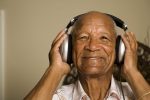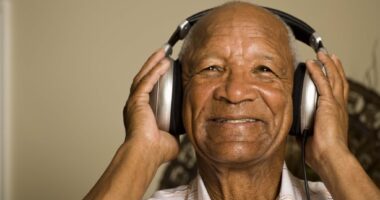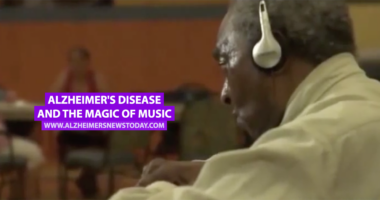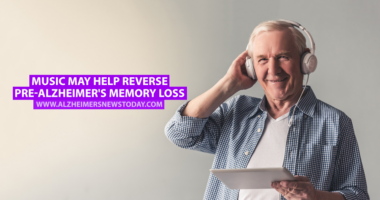Man on Mission to Make Music Accessible for Dementia Patients
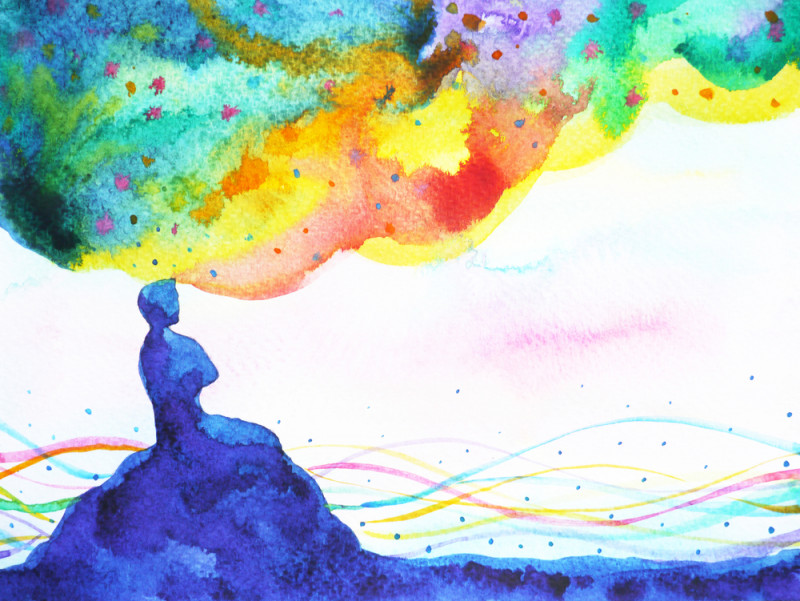
Benjavisa Ruangvaree Art/Shutterstock
Note: An update to this story on Aug. 23, 2021, changed the percentage of assisted living facilities that have incorporated personalized music into their care from 3% to 10%, according to corrected information from Dan Cohen.
According to Dan Cohen, founder of the organization Right to Music, about 25,000 academic papers have been published over the past 40 years showing a link between music and well-being.
With a body of research that points to the health benefits of listening to music, especially for people with dementia in nursing homes, Cohen is hoping to improve access to music by educating healthcare professionals on how to use it for therapeutic purposes and the public on the impact it has on patients with any kind of cognitive impairment.
Through Right to Music, Cohen advocates for integrating music into healthcare and promoting the use of personal music to improve quality of life and potentially health. He’s given keynote speeches across the country, educating caregivers, nursing home and assisted living owners and managers, mental health workers, and college faculty and students about how music can help prevent falls, help patients uncover old memories, alleviate caregiver stress, and reduce reliance on prescribed medications.
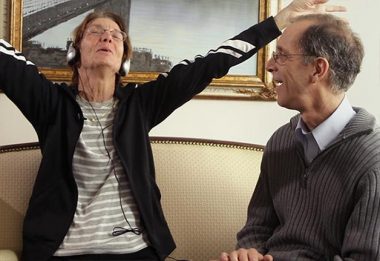
In a scene from “Alive Inside,” Dan Cohen looks on as Mary Lou listens to her favorite music from her home in New York City. (Courtesy of Michael Rossato-Bennett)
“That next step is to leverage that [personal music] not just so some people in healthcare have access, but everybody has access,” Cohen, 69, said in a phone interview with Alzheimer’s News Today. “I’m very excited about the fact that we can make some very definitive advances when the right music is used at the right time for individuals, especially for people with some sort of dementia.”
Cohen brought his first MP3 player to a nursing home in 2006. In 2010, he started the nonprofit Music & Memory, which provides direct training on how to set up personalized music playlists on inexpensive MP3 players. Its flagship course, called Music and Memory Certification Training, costs from $500 to $1,250 depending on the number of people involved. It also offers training for home caregivers and a course for use of personalized music over FaceTime or Skype.
During his 10-year stint at Music & Memory, before starting the advocacy arm of his work, Right to Music, Cohen estimates that he trained about 5,000 skilled nursing and assisted living communities on how to incorporate music into care. That’s about 10% of the total number of facilities in the U.S., so there is still a lot of work to be done, he said.
“I founded Right to Music to help raise the availability so everyone has a right to their music, based on what we know anecdotally and what we know from the research,” said Cohen, who is no longer involved with Music & Memory. “We certainly should not withhold a non-chemical means of providing benefits to people with dementia.”
Part of the reason why dementia and Alzheimer’s disease patients have had positive results from listening to music is because while dementia takes away a person’s short-term memory, their long-term memories and emotions are still intact. Hearing the music of their youth can bring them back to reality in some cases.
A documentary titled “Alive Inside: A Story of Music and Memory,” which came out in 2014, follows several patients who benefited from the Music & Memory approach, including Henry, a dementia patient who had long been unresponsive.
The opening scene shows a nurse putting headphones over Henry’s head, and he immediately seems to open up as he recalls his favorite artist, Cab Calloway, and begins to sing Bing Crosby’s 1943 Christmas hit, “I’ll Be Home for Christmas.”
“He lights up. His face assumes expression,” the late Oliver Sacks, who was a neurologist and author of “Musicophilia: Tales of Music and the Brain,” said in an interview in the documentary. “His eyes open wide to sing and to rock and to move his arms, and he’s being animated by the music. The philosopher Kant once called music the quickening art and Henry is being quickened. He’s being brought to life.”
Founding and running both Music & Memory and Right to Music have been a learning experience for Cohen, who had no previous experience in the clinic or the lab. His master’s is in social work. So he said it was a “blank slate” to start from; he quickly realized that the U.S. healthcare system, while skilled at diagnosing and medicating patients, lacks a focus on improving quality of life.
Cohen believes that in the U.S. healthcare system, medicines, some of which have adverse side effects, are overprescribed, and that with a lack of medicines to treat dementia and Alzheimer’s, non-pharmacological means should be embraced. Music is part of the solution, he said, and the worst thing that could happen with this type of intervention is that it doesn’t work.
“We shouldn’t say if it’s not in a pill, it’s not as serious or it’s not as good,” Cohen said. “Music does have this sort of visceral impact on people. We don’t know exactly what’s at the core of its magic. But we know there is magic in music.”
A 2020 study, published in The Journal of Post-Acute and Long-Term Care Medicine, studied the effects of Music and Memory therapy in 4,107 residents with dementia or behavior problems in 265 California nursing homes over a three-year period. Results showed that music had several positive effects on patients, such as reducing falls, lessening delirium, and increasing alertness, among other clinical benefits.
Cohen gives virtual keynote presentations on using personal music in care settings throughout the country, with different focuses depending on the audience listening — whether they are healthcare professionals, educators, students, families, or caregivers.
He’s been advocating for clinical use of personal music since 2006, when he heard a journalist on the radio say that iPods were ubiquitous. That wasn’t exactly true, he thought at the time. Older generations, especially those in nursing homes, did not have such access.
The idea of a digital divide, which he had discovered in his previous career in sales and consulting during the personal computer boom of the ’80s, was well on display. Neither a scientist nor a musician, Cohen sought to change the paradigm by first visiting a local nursing home near Long Island, New York.
He initially set up three patients with listening devices: one whose best friend recently died, another who was bed-bound, and the third with a psychiatric diagnosis. Cohen created an eclectic music playlist for the man who couldn’t move before he went into a coma because of a stroke.
The nursing staff noticed the patient’s eyes would move while listening, and while they couldn’t know for sure whether it was an autonomic reflex or him responding to the music, it was an experience that stuck with Cohen.
He would like to see the U.S. government change its point of view on non-pharmacological methods to treat people in long-term care centers so that personal music starts to be recommended on a high level. Cohen said that nursing homes do not get paid based on creating a good quality of life for patients, but rather to simply keep them fed and alive.
One recommendation would be bringing long-term care centers up to the standards of hospices, where people are in their last weeks or months of living. In those facilities, the government requires at least 5% of staff to be volunteers, many of whom could help patients with personal music, art, and extracurricular activities.
“People are lonely, depressed, feeling useless,” Cohen said, adding that elderly individuals with dementia need to be treated like people too, and not forgotten. “We keep them alive, but life is no good. There’s a way to change our mindset.”
Cohen is working toward that goal: a change of ethos. And he’s doing it one note at a time.





